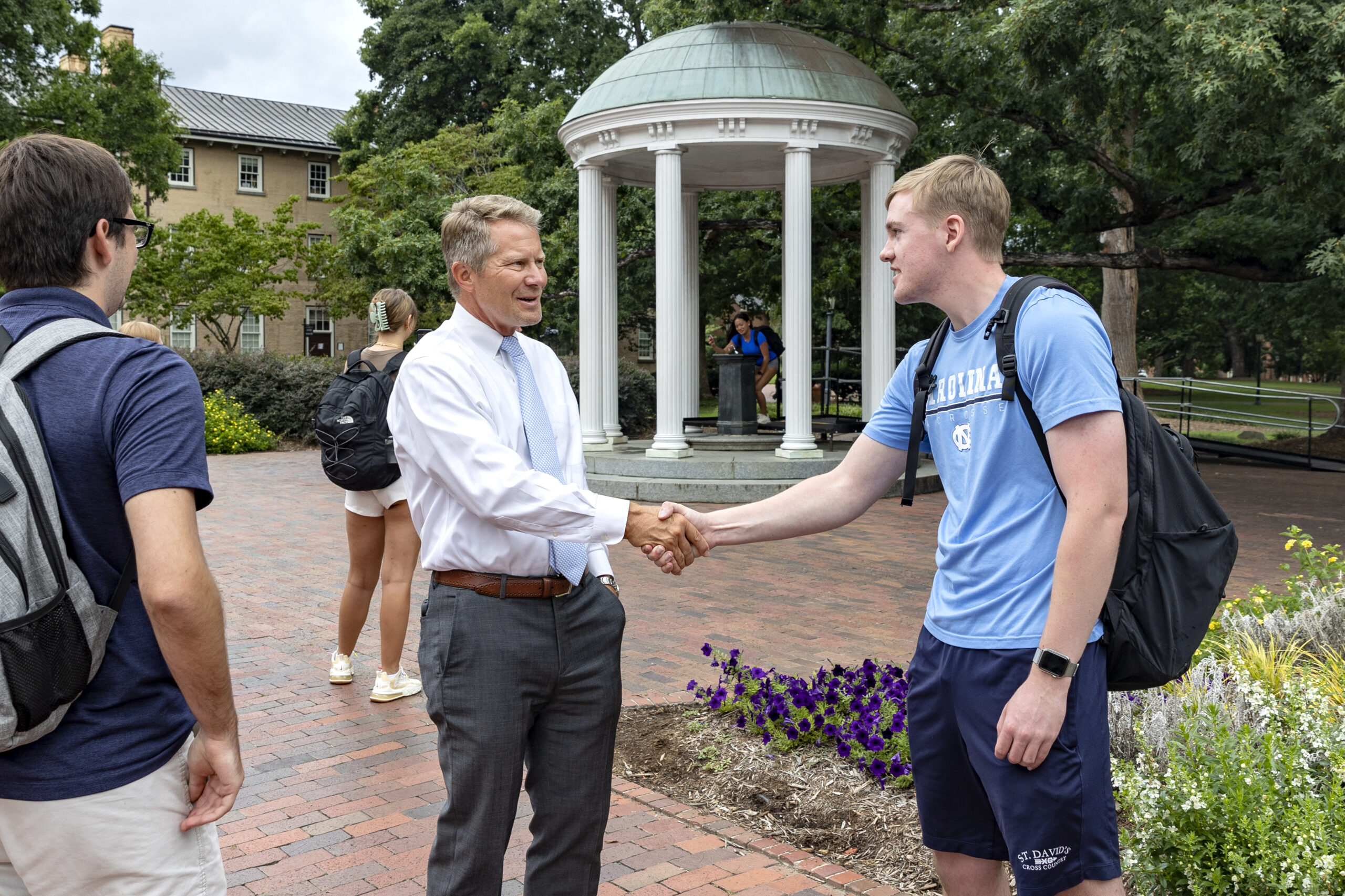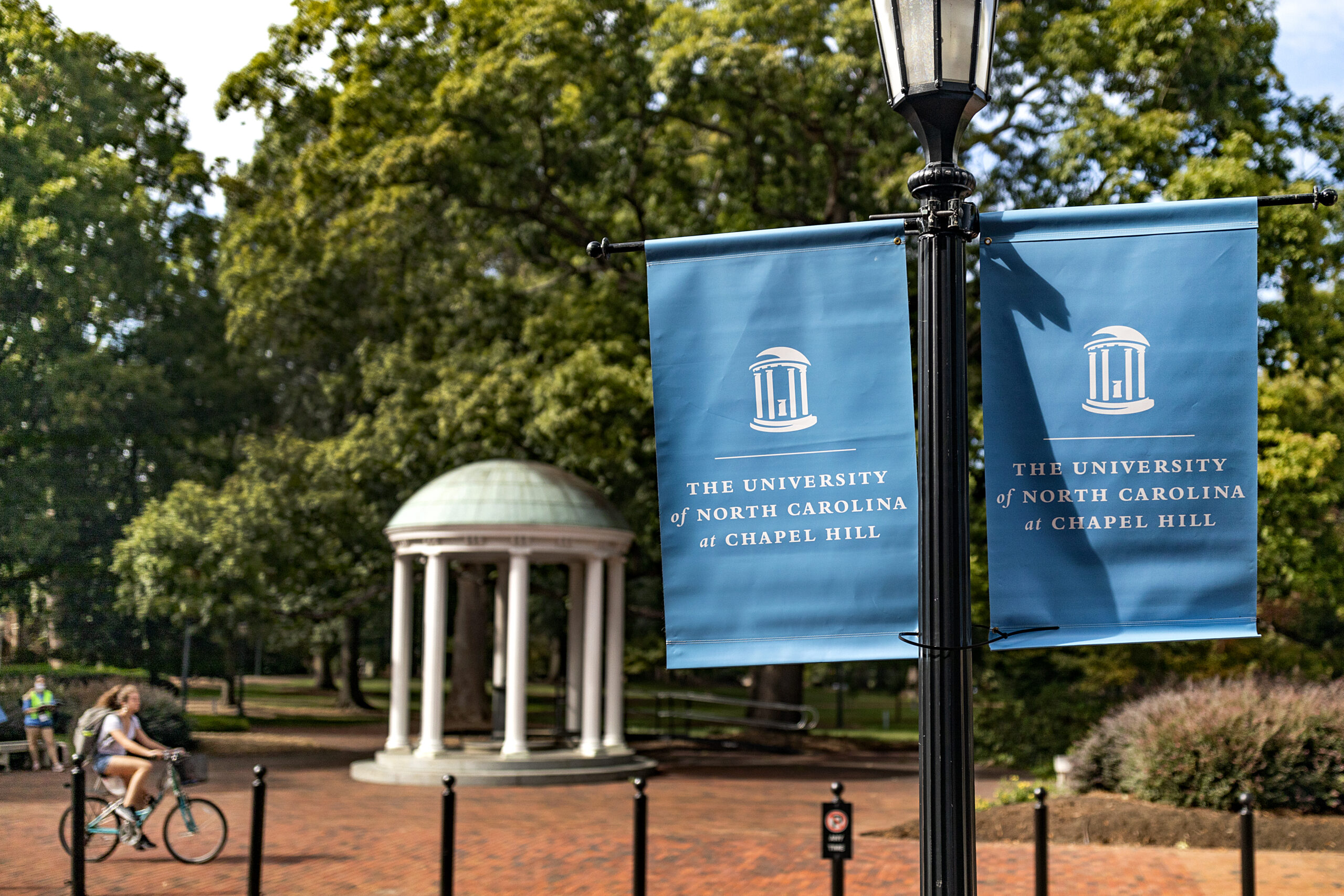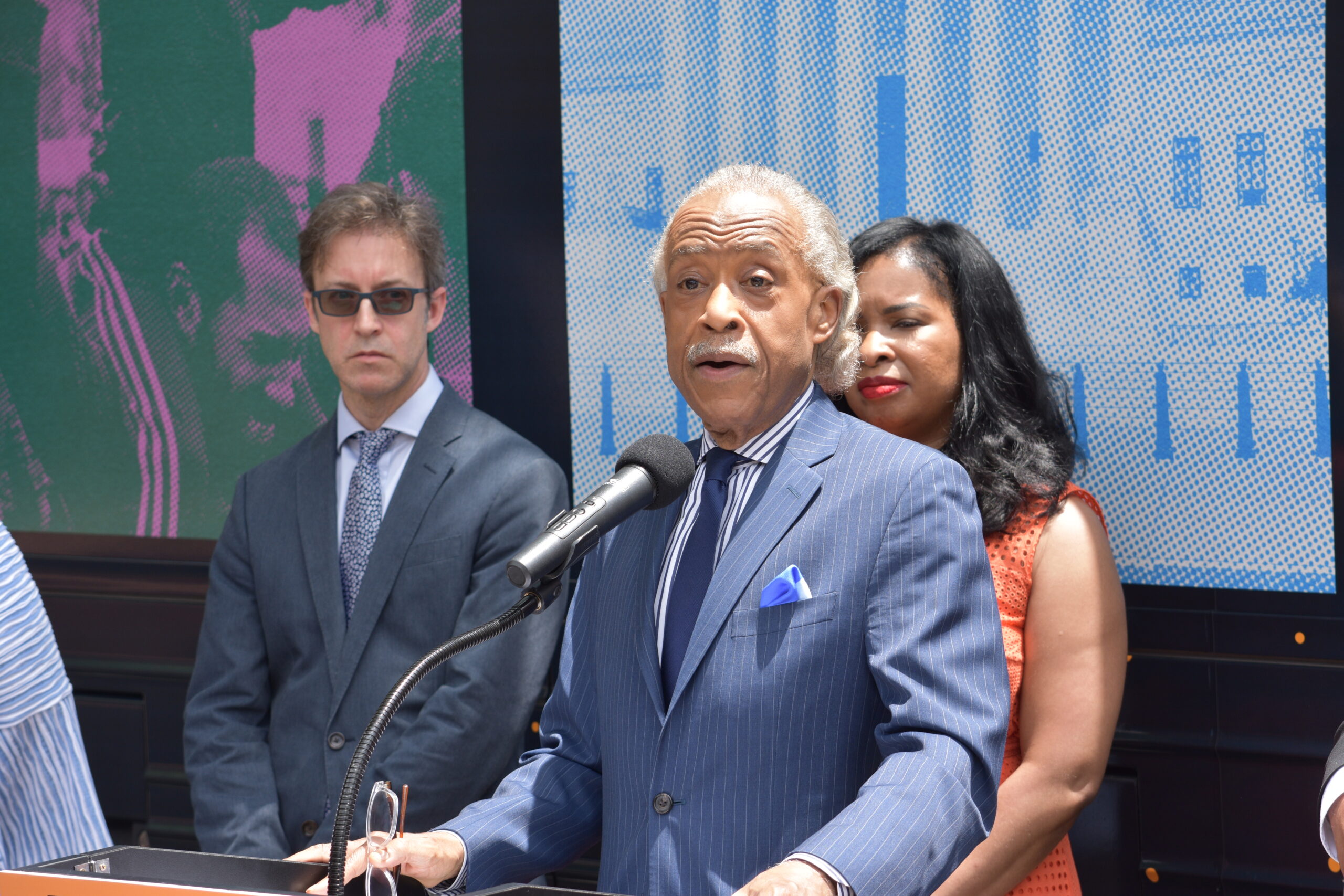Pop quiz!
When it comes to literacy and UNC athletes, who’s got their facts right: Mary Willingham or Steve Farmer?
A. Mary Willingham
B. Steve Farmer
C. Both
D. Neither
E. Both C and D
F. I don’t know, but good Lord, Holden Thorp must be thanking his lucky stars right now
Time’s up! The correct answer is (E).
“Both and neither,” I hear you asking? Yep. And I think the real truth is even more complicated than that.
Let me try to explain.
First, a recap. Last week, CNN reported that universities across the nation were admitting student-athletes (football and basketball players, mostly) who were shockingly underprepared for college, some even to the point of being functionally illiterate. The scope of CNN’s piece went far beyond UNC, but the report centered on Mary Willingham, an academic advisor and former tutor at UNC who had some pretty damning numbers.
Here’s the key stat: Willingham said she studied 183 student-athletes admitted to Carolina between 2004 and 2012, and found that 60 percent of them read at between a fourth-grade and an eighth-grade level. Another 10 percent read at a third-grade level or below.
UNC officials immediately struck back. “We do not believe that claim and find it patently unfair,” said the university in a statement. “I can tell you, we do not admit students who we believe cannot read or write,” said undergraduate admissions director Steve Farmer. Roy Williams even got teary-eyed in a press conference. But no numbers to counter Willingham’s, at least not right away.
Then on Thursday, the numbers came in.
From UNC’s statement: “Between 2004 and 2012, the same time period examined by CNN, UNC-Chapel Hill enrolled 1,377 first-year student-athletes through the special-talent policies and procedures. More than 97 percent (1,338) of those students met the CNN threshold (for college-level literacy)…Of the student-athletes who enrolled between 2004 and 2012 under the special-talent policies, 341 were recruited for football, men’s basketball and women’s basketball. More than 90 percent (307) of these students met the CNN threshold.”
“The CNN threshold,” by the way—a weird phrase that I think UNC just now invented—refers to the level cited in the CNN report as a measure of college-level literacy: a 400 on the SAT verbal exam or a 16 on the ACT. What UNC is saying here is that more than 90 percent of the football and basketball players who entered Carolina during that eight-year period topped either or both of those scores. (Which means a full ten percent didn’t, but that’s another story.)
So. There are the numbers. Willingham’s on the one side, and Farmer’s on the other.
Who’s right?
Here’s the thing: Willingham and Farmer are technically measuring different things, so the truth is that both sides could be right. Farmer believes otherwise—“I think these numbers are wildly incompatible,” he told WCHL Thursday—but it’s entirely feasible for someone to score a 400 on the SAT without being able to read at an eighth-grade level. (Farmer wasn’t able to say exactly how high those athletes scored, only that they topped the minimum “CNN threshold” of 400 SAT/16 ACT. How much did they top it by? No idea.) We don’t have Willingham’s research in front of us to be able to verify it independently—so we can’t say for sure—but unless there was something dramatically wrong with her methodology, there’s no real reason to disbelieve her.
So where does that leave us?
Should we be upset? What should we be upset about? And why? And what should be done?
Well, that’s where it gets a little more complicated—because the real issues here, and the real culprits, lie way beyond the scope of this current debate. That’s what I mean when I say Willingham and Farmer’s numbers are both right and wrong.
A couple things.
First: UNC’s getting singled out here because Willingham is front and center in the CNN report, but it’s important to recognize that this is not, specifically, a UNC problem. It’s a college athletics problem, writ large. This is, I guarantee you, happening everywhere: wherever there’s a major Division I program, you’re going to find students being admitted who can barely read or write. (The CNN report says as much, as does Willingham’s master’s thesis.)
It’s also worth noting that all of this is well within NCAA guidelines. The NCAA requires only that student-athletes earn a 700 on their SATs—that’s a 350 average on the math and verbal portions, well below the “CNN threshold” of 400, and a student can even get admitted with a lower score if they have a high enough GPA (and any self-respecting high school can figure out how to inflate that). Which is to say that the NCAA doesn’t even try to require that its student-athletes be literate. That’s kind of a problem too.
In that context, is it really so shocking to hear that a sizable percentage of college athletes have a hard time cutting the mustard academically? (I haven’t even mentioned the pervasive influence of money, yet another big-time source of pressure on universities to admit student-athletes who struggle in the classroom.) How bad is it? Forget the low bar—look at the high bar. In men’s basketball, a GPA of 3.30 is good enough to qualify you as an Academic All-American. That’s a B-plus average. Average a B-plus in your classes (with grade inflation!), and you’ll rank among the best in the entire frickin’ country.
Not to knock a B-plus, but that’s kinda sad, people.
And it goes even deeper.
Because—although it’s not obvious—we also ought to recognize this as an indictment of K-12 education in general.
There have been a couple N&O articles about Mary Willingham in the last week. In one of them, the opening line jumped out at me: “As a reading specialist at UNC-Chapel Hill, Mary Willingham met athletes who told her they had never read a book and didn’t know what a paragraph was.”
My first thought? “Oh yeah. I’ve been there.”
You might know that I too have an academic background, including seven years in grad school at Rutgers University in New Jersey. At Rutgers, I paid part of my way by teaching English 101, Expository Writing, the one course that all Rutgers students are absolutely required to take and pass. Since it’s a universal requirement, you get quite a diverse cross-section of students.
Some of them were terrific. Some of them were atrocious.
And since the goal of Expos 101 is to teach incoming freshmen how to write a college-level essay, I can tell you, from direct personal experience, in no uncertain terms: yes, yes, a thousand times yes, there are lots and lots of first-year college students who don’t know what a paragraph is. Lots and lots of college students who’ve never read a book. Lots and lots of college students who can’t grasp the meaning of a piece of writing, can’t formulate a thesis statement, and can’t understand how to use evidence to support an argument when they do come up with one. (We teachers used to sit around wondering what level of troglodyte you’d have to be to apply to Rutgers and actually get turned down. We finally got our answer when “Jersey Shore” came out.)
And I’m not talking about athletes here.
I’m talking about the general population. Regular students. The ones who met all the standard admissions criteria and didn’t require a “special admit” to get in.
This is how it’s come to be in K-12 education, in a lot of places. It is possible for students to graduate from high school without ever having to write an essay or read anything of any real substance. The push for more and more emphasis on STEM classes (and therefore less and less on reading, writing, and critical thinking) is only making matters worse.
It is out of this system that admissions directors like Steve Farmer are getting their applicants. I don’t envy them one bit. (Carolina tends to get a higher class of applicants, but still.)
And if it’s that bad among incoming college students in general, it only stands to reason that it’s even worse among incoming student-athletes—many of whom are receiving those “special admits” because they can’t even meet those standards.
So when I hear Mary Willingham say 60 percent of incoming student-athletes at UNC can’t read beyond an eighth-grade level—no, I’m not surprised. I can’t confirm those numbers, I don’t have the raw data in front of me, I suppose it’s possible she could be wrong—but no, I’m not surprised. The numbers UNC released Thursday really don’t change a thing for me. I believe they’re accurate, and I believe UNC admitted each and every one of those students with the best of intentions…but I also believe Mary Willingham. I think she’s on to something, at least.
But all of that—all of that—ALL of that—is actually beside the point. Pretty much everything that’s been said around this issue, all week long, has been one red herring after another.
The real question, the one that matters, is this:
Once we admit those students to UNC, are we providing them with a quality education? Are we doing right by them academically while they’re here?
That’s what it comes down to, really. I’m not a fan of “special admits” myself (feels a bit like the tail wagging the dog), but if UNC can bring in someone who’s virtually incapable of reading or writing, and in four years bring that person up to a level of literacy they’d otherwise never even be able to dream of reaching—well, bully for UNC, then! That would be a good thing, not a bad thing.
That was, after all, the purpose of Expos 101, up at Rutgers. Still is, in fact. They take kids who have no business being in college, put them through a reading/writing/critical thinking boot camp, run them through the wringer for a semester, and turn them into real College Students. (Most of them, anyway.)
This is also why college athletics departments—the good ones, that is—are so rigorous about making sure their student-athletes attend their classes, keep up with their schoolwork, and seek help when they need it. For every horror story about “no-show” classes or grades being changed behind professors’ backs, there’s a story about compliance officers peeking into classrooms to make sure the kids are there, or coaches benching their best players for missing a test right before their biggest game of the year. (Hey, Tom Izzo.)
This is what we want. Regardless of the quality of the student when they enter the university, what matters is that they be a high-quality scholar when they leave it.
This is a point Jan Boxill often makes, when talking about the value of college athletics. (She’s the director of the Parr Ethics Center as well as a college sports expert, so she ought to know.) It’s also a point that Willingham makes in her master’s thesis; in fact much of her argument about admissions criteria rests on the assertion that there’s a level of literacy below which you just can’t expect a student to make it in college under any circumstances. “I am prepared to grant that there are benefits to a student-athlete’s college attendance, but ultimately, admitting under prepared students constitutes deceit and is immoral,” she writes on pages 10-11. “In admitting underprepared students, the university and the coaches are setting them up for failure.” (She may be right, but that question requires a whole other debate.)
So. Is UNC measuring up?
Obviously it wasn’t doing such a great job before all the scandals broke. (Willingham’s most damning allegation actually has nothing to do with admissions—it’s her charge that people in the academic support program were fully aware that cheating was rampant and classes were fraudulent, and let it all slide. That’s the smoking gun we haven’t seen yet.)
Is it doing better now? As a whole, probably yes, if only because the heat is on. There are reforms in place, actions being taken. Even the undergraduate admissions numbers are improving, as Farmer’s statistics indicate: all 154 of the “special-admit” athletes who entered UNC last fall met the “CNN threshold” of 400 SAT/16 ACT.
That question—“is UNC measuring up?”—is a question that’s going to take a lot of time, and a lot of oversight, to answer. It’s a question that’s never going to go away. It’s a question that never ought to go away.
But let us be clear, when we think about the Willingham saga and talk about those numbers: that is the real question at stake here. Is our university, and our athletic department, really committed to providing a high-quality education to student-athletes? Does our academic support center have its priorities straight? Is there oversight? When student-athletes leave Carolina, do they leave it as scholars, critical thinkers, citizens? Or is their “degree” just a phony piece of paper?
Or to put it another way: the current debate aside, it’s not about what comes in—it’s about what goes out.
Last things first.






Comments on Chapelboro are moderated according to our Community Guidelines